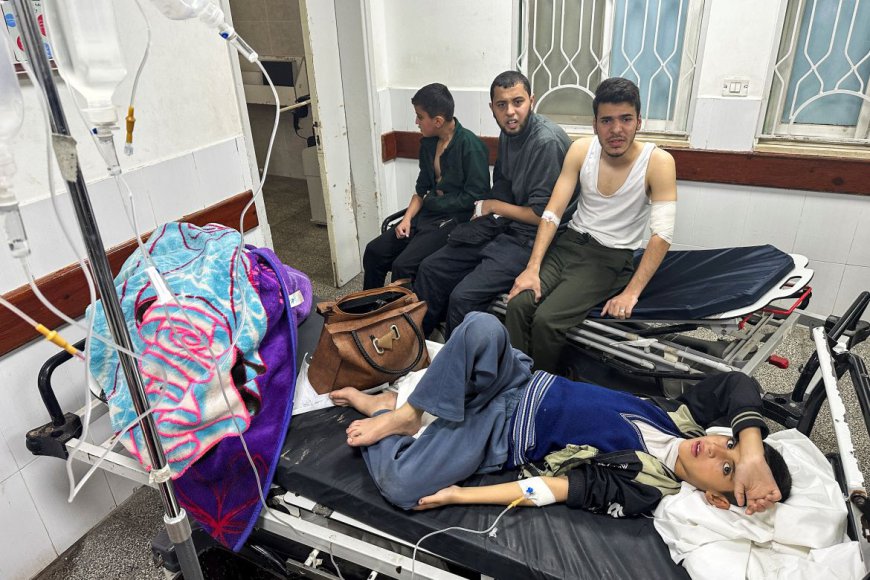Health Crisis Grips Gaza as Diseases Surge Amid Conflict and Humanitarian Challenges
In the aftermath of Israeli strikes and a collapsed health system, Gaza faces a severe health crisis. Diseases, including a 66% surge in children's diarrhoea cases, grip the region. With makeshift shelters flooded, food and water shortages, and hospitals on the brink, the situation is dire. Explore the devastating impact of the conflict on public health in this urgent report.

In a distressing turn of events, the Gaza Strip is grappling with a severe health crisis, further exacerbated by Israeli strikes, a collapsed health system, and challenging humanitarian conditions. The situation has led to a surge in diseases, particularly impacting children.
Children Bear the Brunt: Data from the World Health Organization (WHO) reveals a staggering 66% increase in diarrhoea cases among children under five from November 29 to December 10. The overall population witnessed a 55% rise in such cases. However, experts caution that these figures might not capture the full extent of the crisis due to the near collapse of Gaza's health system.
Overwhelmed Healthcare Facilities: Hospitals and healthcare facilities in Gaza are overwhelmed, with the UN reporting that 21 out of 36 hospitals are closed, and the rest are either partially or minimally functional as of December 10. The dire situation is evident in the accounts of medical professionals, such as Ahmed al-Farra, head of the paediatric ward at Nasser hospital, describing cases of extreme dehydration leading to kidney failure and a surge in hepatitis A.
Epidemics Looming: The UN Office for the Coordination of Humanitarian Affairs warns of potential epidemics, citing cases of meningitis, chickenpox, jaundice, and upper respiratory tract infections. The dire humanitarian conditions, including heavy winter rains flooding makeshift shelters, acute food, and water shortages, contribute to the looming health catastrophe.
Collapsed Infrastructure and Displacement: Since the truce between Israel and Hamas collapsed on December 1, hundreds of thousands of Gazans have sought refuge in abandoned buildings, schools, and tents. Many, however, find themselves in open spaces with limited access to essential facilities, exacerbating the risk of disease spread.
International Response Urgent: The international community faces a pressing need to address the unfolding health emergency in Gaza. With healthcare facilities unable to cope with the surge in cases, there is a crucial demand for increased medical aid, food, and safe water supply. Urgent measures are required to prevent the anticipated epidemics and alleviate the suffering of the Gazan population.
As the conflict continues, the health crisis in Gaza serves as a stark reminder of the devastating toll on civilian lives, especially on the vulnerable, including children, who are disproportionately affected. The international community's swift and decisive action is imperative to prevent further loss of lives and mitigate the long-term impact on public health in the region.







